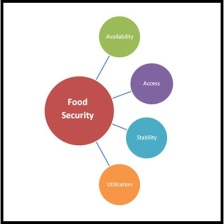Shortage of Science & Technology Professionals harming Africa’s Growth
Posted: March 20, 2014 | Author: Leona Sharon | Filed under: Education, Uncategorized | Tags: Accelerating Africa’s Aspirations, Government of Rwanda, Millennium Development Goal, Sub-Saharan Africa, Tawhid Nawaz, upgrade higher education in Africa, World Bank | Leave a comment
Source: bit.ly/1gC9nKW
As an educator, I always believe that with a little help and right direction, developing nations, like countries in Sub-Saharan Africa, will be able to achieve great heights. The first sector that needs a nudge is education. The educational infrastructure of African countries is affected by political upheaval and is not of the global standard. Also, many of the students are not economically sound and therefore can’t afford higher education. These are the reasons why developing nations are lagging behind and with a little assistance, there is no doubt that the problem can’t be solved.
Recent revelations
Recently, I was surfing the internet, reading fascinating articles on educational imbalance in developing countries when a rather interesting article caught my eye. Sub-Saharan Africa is developing rapidly but it has been noticed that to reach only one ‘Millennium Development Goal’ which is of improved sanitation and access to potable, safe drinking water, the continent will require a huge number of health professionals, engineers, scientists, technicians, etc. However, there is a severe shortage of science and technology professionals in all the 48 Sub-Saharan African countries.

Source: bit.ly/OzGJUN
This concerned me a lot as thought how much developing nations have to fight to lead healthy lives and to have access to clean drinking water. Thankfully, this issue has caught the attention of the Government as well and to address the issue, one of Africa’s biggest higher education partners, the World Bank and the Government of Rwanda, a campaigner of science and technology, have hosted a forum on Higher Education in Technology, Science and Innovation this week in Kigali.
To focus & capitalise
As I read on I came across absolute truths and facts I completely believed in. African economies have been on the rise because of the demand for raw produce and merchandise, to a certain degree, and it is the right time for the continent to focus on technology, science and innovation. If the countries produce more graduates in subjects like technology and applied sciences, then the economies could do much better by adding value to raw merchandise and produce. This way, African countries could actually compete at a global level for brilliant services and products.
If the countries focus on training their graduates in science and technology well, then the countries will be able to do much better by finding cost-efficient, effective and local solutions to problems related to poverty, development, food security, health, climate change and urbanisation.
Upgrading the higher education system across Africa
Source: bit.ly/1lRZVbd
The forum was themed Accelerating Africa’s Aspirations and brought together senior representatives from academia, governments, the private sector and development partners. In the forum, held on March 13, they discussed solutions to upgrade higher education in Africa, talked about priorities and also discussed how they are relevant to the growth of the economies.
“What we are gathered here to do has profound implications for young people in Africa. Essentially, young people can take advantage of economic opportunities only if they have the right knowledge and skills.” – Tawhid Nawaz, World Bank Director, Human Development, Africa.
If nations in Africa don’t strike now or focus on immediate needs, they will lose out on a lot and won’t be able to address impending problems.
(Article Source: bit.ly/1ftK2m6)